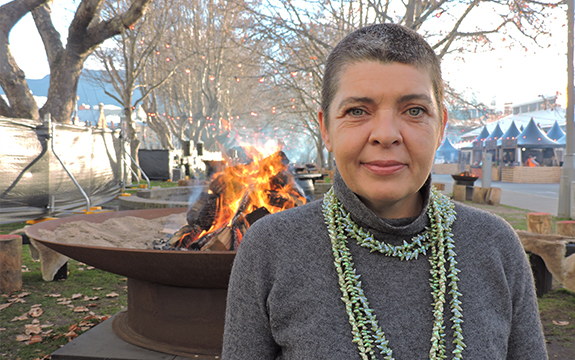Dr Emma Lee joins National Co-Design Group for Indigenous voice

In Summary
- Swinburne’s Dr Emma Lee is appointed to the National Co-Design Group for an Indigenous Voice
- Dr Lee’s research spans over 25 years in Indigenous affairs, natural and cultural resources and governance
- Swinburne has embedded a culture of reconciliation that supports and encourages a safe space for Indigenous research
Swinburne’s Aboriginal and Torres Strait Research Fellow at the Centre for Social Impact Dr Emma Lee has been appointed to the National Co-design Group working to develop the Indigenous voice.
The National Co-Design Group will look at how the Indigenous voice could operate at a national level, including membership, structure and functions, and forms part of a broader ongoing consultation with the Australian Government. The process aims to empower Aboriginal and Torres Strait Islander people to ensure experience and views are considered in policy and decision-making.
A trawlwulwuy woman of tebrakunna country in north-eastern Tasmania, Dr Lee’s research fields span over 25 years in the fields of Indigenous affairs, land and sea management, natural and cultural resources, regional development, policy and governance of Australian regulatory environments.
She is instrumental to the Tasmanian Government’s ‘Reset the Relationship’ strategy working to establish a cultural fisheries industry as a practical step towards reconciliation. This work contributed to shaping the first joint management plan of a protected area in Tasmania, constitutional reform and establishing a market for cultural fisheries.
Dr Lee says she is looking forward to engaging with shaping the ways in which Indigenous peoples can enjoy and participate in full civic lives.
“It is a deep honour to undertake public service, however the role in developing models for our Indigenous voices to be heard in parliament is an exceptional privilege,” Dr Lee says.
“By bringing our cultural strengths and assets of reciprocity and kinship to the negotiating table, we can begin to find the ways in which we belong to each other as Australian citizens.
The role of the Voice is to amplify how we connect to each other and make rules that are of mutual benefit for our common wellbeing.”
Leadership creates space for action
Dr Lee believes Swinburne’s success in Indigenous leadership through its Elevate Reconciliation Action Plan (RAP) and support from the Vice-Chancellor has provided the safe spaces for Indigenous research to have social impact nationally.
“The relationship between Swinburne campus and Indigenous communities has been built together with respect and inclusion, which are values that should underpin any national model for a Voice to Parliament,” Dr Lee says.
Professor Andrew Gunstone, Executive Director of Reconciliation Strategy and Leadership, congratulated Dr Lee on her appointment.
“Dr Lee’s appointment to the National Co-Design Group is a very well-deserved recognition of her outstanding research and leadership in this area. Dr Lee will make a critical contribution to the important work of the Group,” Professor Gunstone says.
“One of the outcomes from our Elevate RAP was to create the Aboriginal and Torres Strait Islander Research Fellowship Scheme. We are delighted that this Scheme has enabled the university to appoint three exceptional researchers, including Dr Lee.”
Swinburne recently reaffirmed its declaration of support for the Uluru Statement from the Heart calling for an Indigenous voice to parliament to be enshrined in the Australian Constitution.
Vice-Chancellor and President Professor Linda Kristjanson AO said the university, as an elevate Reconciliation Action Plan (RAP) organisation, was committed to a shared journey towards reconciliation.
“Last year we stood with community and colleagues from around the country to declare our support for the Uluru Statement from the Heart. We are committed to progressing reconciliation in Australia, and hope the path forward continues to be shared and embraced,” Professor Kristjanson says.
We are honoured to stand with Aboriginal and Torres Strait Islander people and communities as they continue to demonstrate exceptional resilience and strength in the face of enduring problems and new challenges. We look forward to working with you and supporting you to develop and enact specific proposals in relation to Voice, Treaty and Truth.”
About reconciliation at Swinburne
Swinburne has a strong commitment to Aboriginal and Torres Strait Islander matters and to reconciliation. In 2017, we were the first Australian university to achieve Elevate status for our 2017-2019 Reconciliation Action Plan (RAP).
In 2018, we established the Moondani Toombadool Centre that is responsible for all Aboriginal and Torres Strait Islander matters and reconciliation at Swinburne.

